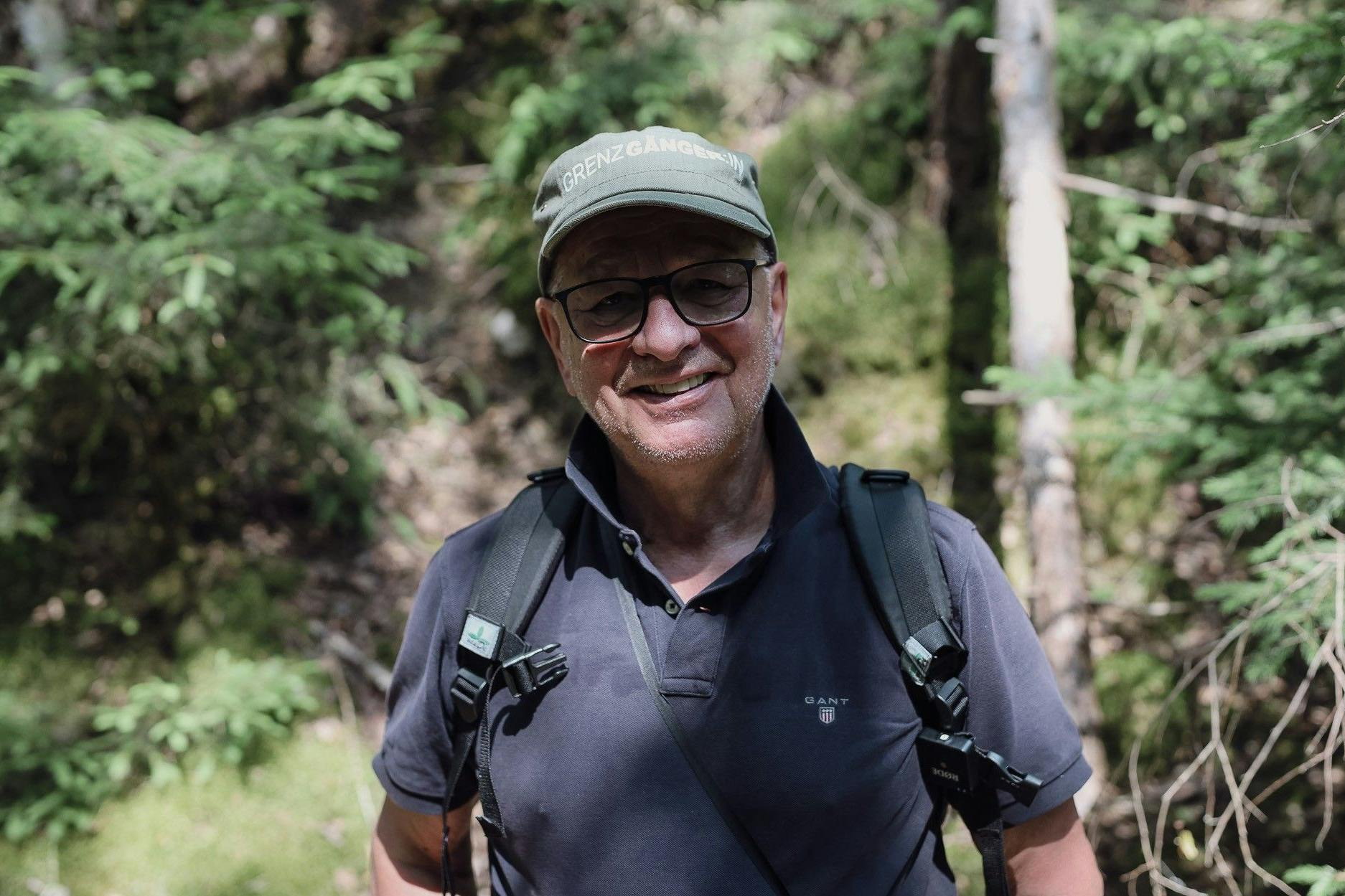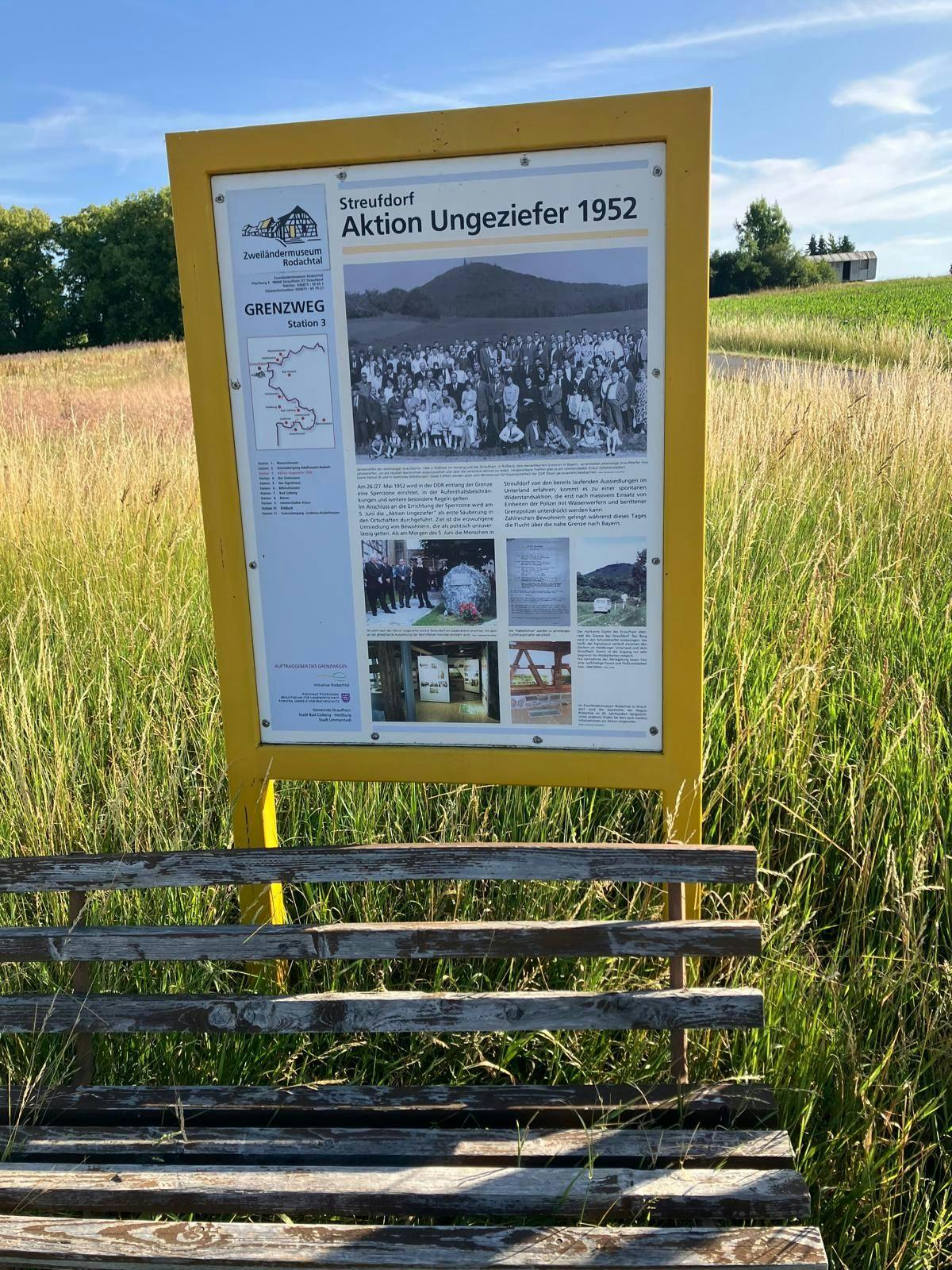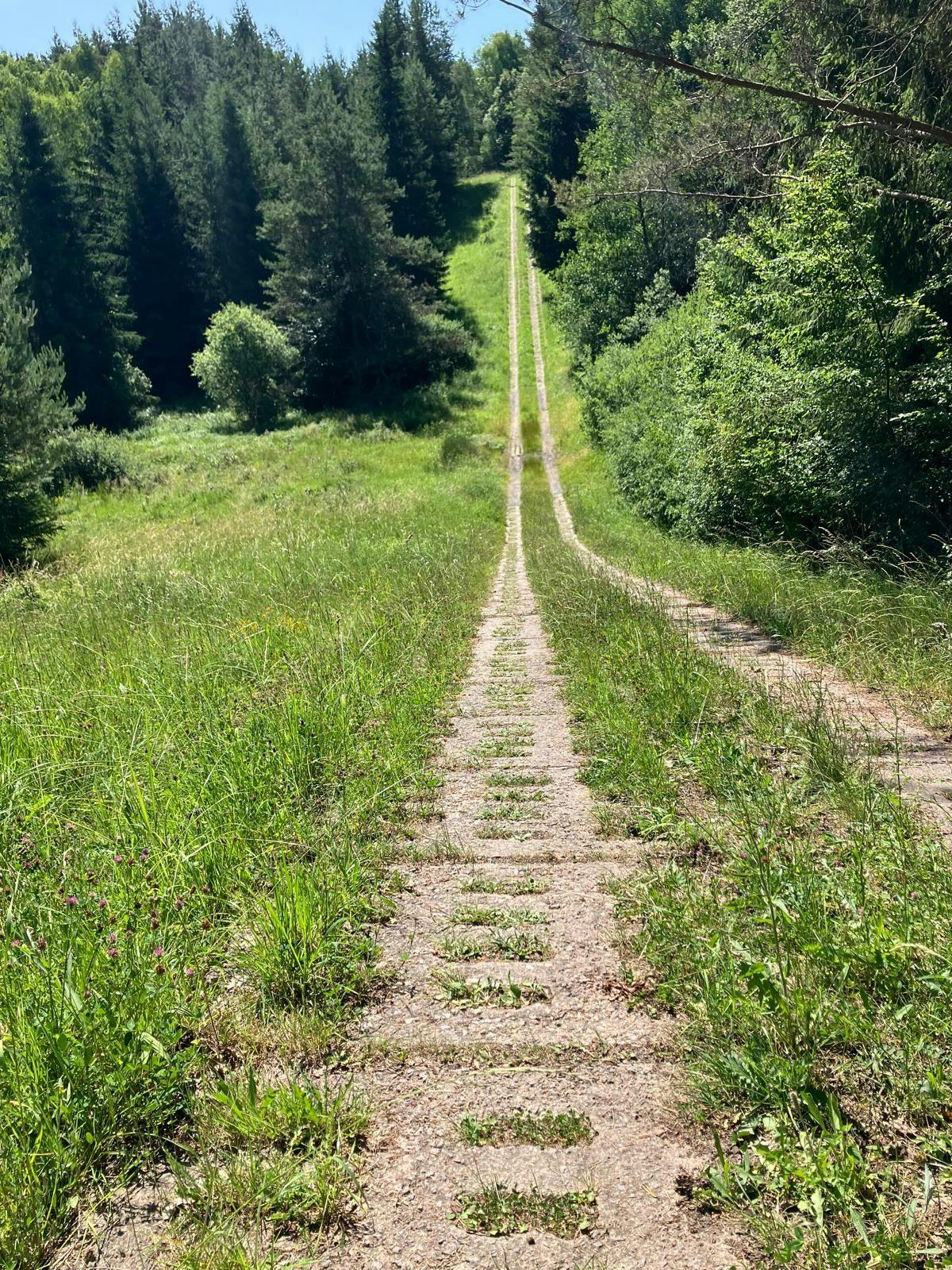In the video: “I don’t want to remain idle!” - Why a former border guard is hiking for peace

Hundreds of people are following the campaign by former border guard and former mayor of Treptow, Günter Polauke. How readers are reacting to the border crossing.
Günter Polauke is hiking 1,400 kilometers along the former border between East and West. He doesn't want to remain idle when mobilization for war is renewed and new borders divide people. He himself served for three years as a GDR border guard during the Cold War , which is why he chose the Green Belt for his personal pilgrimage, the hike of his life, the strip that runs through Germany along the former system and state border.
On Tuesday, he was on his way between Bad Colberg and Einöd, and from there he'll head to Zimmerau on Wednesday. Since his start on June 11, 2025, at the border triangle of Saxony, Thuringia, and Bavaria, he has covered almost 300 kilometers – almost a quarter of the way to the Baltic coast. He's coping with the heat, is in good spirits, and is amazed at the extent to which nature has reclaimed the former death strip.
Günter Polauke, mayor of the Berlin district of Treptow for many years for the SED (Social Democratic Party), said at the start of his mission: "I want to come to terms with myself and start a conversation with people along the way." More than 300 people are now following his reports on Instagram. The fact that the campaign is moving people is also evident from the reactions of readers of the Berliner Zeitung.
Markus Schilling, who has just completed the section of the Green Belt from Weferlingen to Lenzen, wrote that he likes to view Polauke's hike "from the perspective of peace": In 2018, he himself cycled along the once barren, now green, border strip from Lübeck to Marienborn; since 2019, he has arranged to go hiking with a friend: "Thus, every year for a few days around Pentecost, we enjoy nature and the testimony of how division and tyranny can be overcome."
You learn a lot about each other as children of the West and the East, about the country and its people, and you continually meet interesting conversation partners: "As a child of the Federal Republic of Germany, I learned a great deal about life in the GDR and the (dis)content since 1990." Apparently, more and more people are motivated to take such a tour. Markus Schilling writes: "We met almost 20 people on the approximately 180 kilometers who were on the same mission."
He hopes that "more people will embark on this special and unique 'pilgrimage', because you take something with you - the stories, the endless expanse and silence in the middle of otherwise densely populated Germany, reflecting on what unites rather than what divides." An example that apparently reaches far beyond Germany, even to Korea, of "how inhumane border installations can be transformed into a paradise for nature and hikers."
For Berliner Beate Reisch, the report in the Berliner Zeitung reminds her of an encounter with Günter Polauke 36 years ago, a day when it became clear how far the SED regime had become from the people. It was also a traumatic day for Polauke, as he had to announce the blatantly false results of the local elections for his district of Treptow.
At that moment, Günter Polauke appeared to Beate Reisch as "a lost, sad figure": "In the electoral commission, we had checked the ballots, including the percentages. As I recall, we were at about 79 percent yes votes. As soon as we arrived at Treptow City Hall, Günter Polauke stood before us with a stony face to take the 'boxes of ballots.' I think he knew in advance about this electoral fraud. Tonelessly, yet with a somewhat defiant voice, he announced the falsified election result. We, who had read and counted the ballots, knew immediately that the result couldn't be correct."
Afterwards, as members of the electoral commission, they discussed "this strange situation" during a dinner in the town hall: "No one obstructed our disputes. Günter Polauke had withdrawn." Egon Krenz, chief election officer, announced that evening that 98.85 percent of the votes were in favor of the National Front candidates. For Beate Reisch, "this day was already the end of the GDR."
“Romanticization of the GDR”Polauke resigned as district mayor shortly after reunification. He says he could no longer stand up for his elected representatives, and he still struggles with himself today: "I could and should have said no. What would have happened? I would have lost my office, perhaps they would have declared me insane," he told the Berliner Zeitung years ago. He has always spoken openly about this issue—part of the purification process.
Reader Henri Matisse, however, couldn't find anything positive about the Polauke project. He wrote: "A former SED comrade is happily hiking along the Wall. And Holger Friedrich and a few others from the Berliner Zeitung are coming along. Simply unbelievable!" Holger Friedrich, publisher of the Berliner Zeitung, accompanied Günter Polauke on two stages of the hike because, as he said, "this credible form of biographical reappraisal deserves support."

Andrea Koch from Thuringia also still finds the memories painful, and sees the hike and the reporting as trivializing the GDR dictatorship. There are also very personal reasons for this: "My grandmother lived in the exclusion zone in Blankenberg ( a border town, now located on the Green Belt, editor's note ). The wall was there every day. Her family – from Bavaria and Franconia – was separated by the construction of the wall. We could only visit her with a pass.
Upon arrival in the village, register with the ABV ( section representative of the People's Police, editor's note ). Then make an entry in the house register." Her relatives lost their house because it stood directly on the Wall, she reports. Others were simply permanently displaced from their homes in covert operations without warning. The German-German Museum in Mödlareuth documents such stories.

Andrea Koch reports that the local SED (Socialist Unity Party) blew up the castle in the town, and then "people in the GDR simply told the Russians that it was the Russians. But it wasn't even them in this case. It was the SED." In her opinion, the Berliner Zeitung newspaper "romanticized" the event: "The entire story is distorted by portraying SED hiking enthusiasts. Perpetrators are portrayed as friendly hikers. It couldn't be more absurd."
Agreement for a joint stageManfred from Meiningen wrote directly to Günter Polauke after reading about his plans in the Berliner Zeitung: "I'm very impressed by how you don't just want to walk this long path as a solitary hiker, just to enjoy the restored nature." Because he liked Polauke's intention and his views, and because they "presumably have similar biographies," he came up with an idea. He wrote: "We both come from the same generation, even if I'm a few years younger than you. We both had careers in the GDR. I'm not that far from you in Berlin-Köpenick, working in the construction administration of the National People's Army."

He is doing well, he has adapted to the new times and found his place: "But the way the world has changed, especially in recent years, and how our politicians seem to be unwilling to learn from the past, worries me greatly."
A few years ago, he moved back to his hometown of Meiningen, not far from the former border. The border was always present for him, both professionally and privately – in Berlin, he lived for a long time on Gleimstraße, just before the Gleim Tunnel.
He suggested a meeting at a place just a few hundred meters from the patrol route, "where there would be an opportunity for a rest and a chat," and sent a map section with markers. That's how it all began. The two men have now arranged to meet for a joint hike on June 29th.
Do you have feedback? Write to us! [email protected]
Berliner-zeitung




